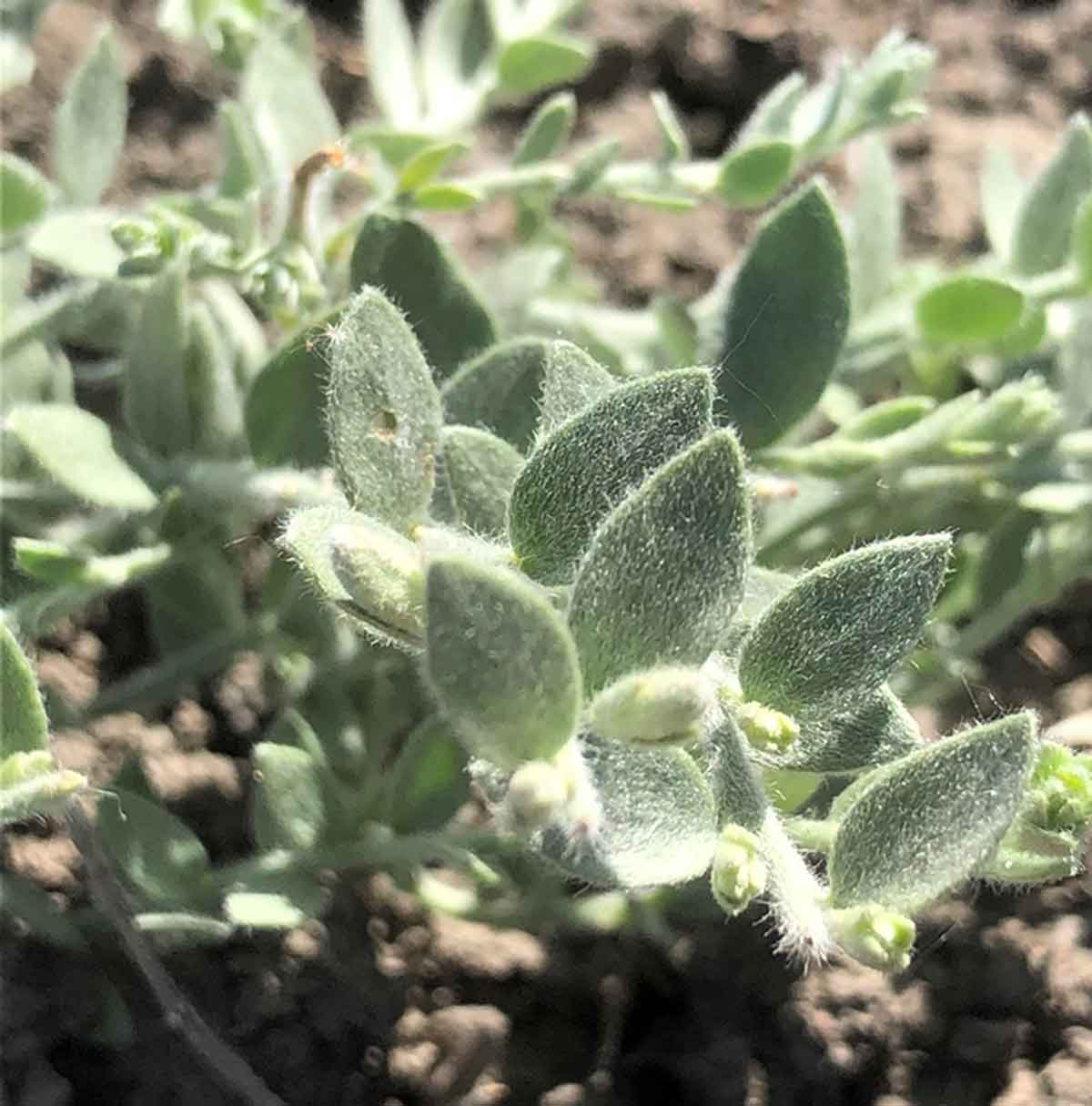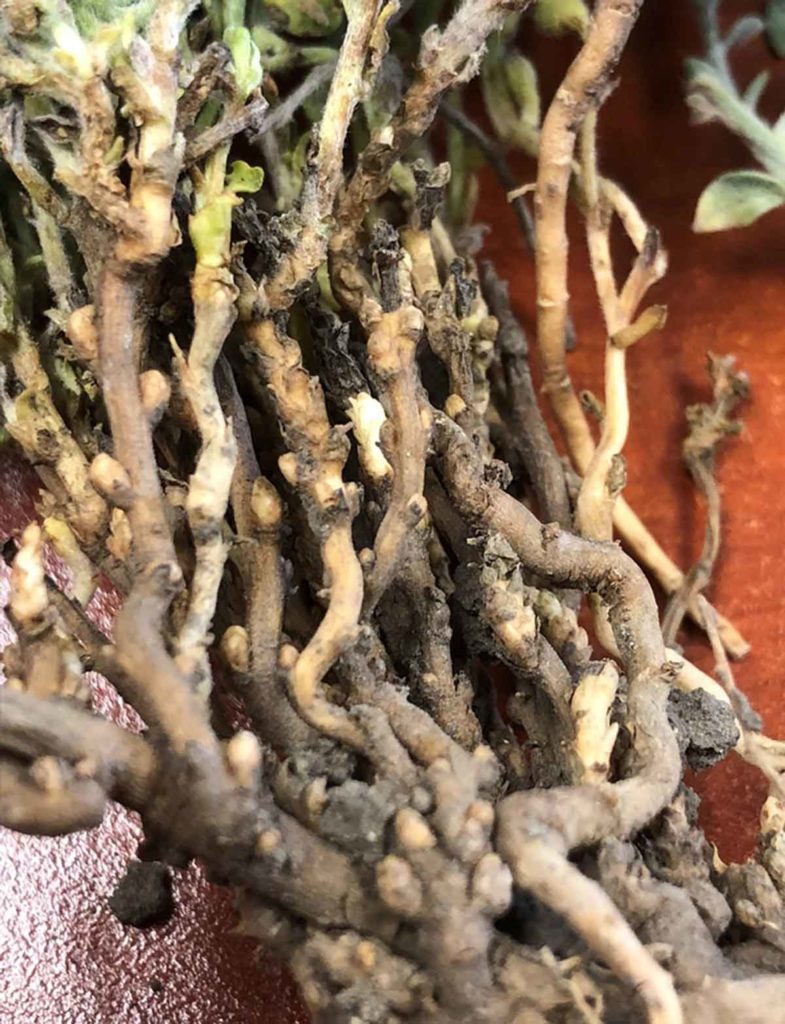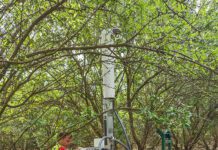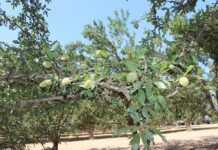“In some places it’s covering berms so thick you can’t see the drip lines or emitters,” said Fresno County UCCE weed management farm advisor Kurt Hembree.
Hembree said alkali weed, a member of the bindweed family, is actually a native California species that has moved south from the northern Sacramento Valley and favors open ground and young pistachio orchards. Where the weed covers the ground, it’s likely it is taking water meant for young trees.
It was not considered a major weed in cultivated crops until a few years ago, Hembree said, but now it is becoming established in fields as far south as Bakersfield, more on the west side of the valley in alkaline soils. Due to the invasive nature of alkali weed, Hembree said he and colleagues are studying biology of the plant to determine effective control methods.
Alkali weed is a perennial plant that germinates from seed in the spring, blooms in May and June and produces seed. It grows through the fall and only goes dormant at a frost event. Since the seeds float, Hembree said it is spread to new locations by water in irrigation canals and natural water channels. Where there is little competition for water and light, the plants take hold and develop an extensive underground root/stem system that makes it difficult to eradicate. Herbicide trials have yet to deliver an effective control method. Hembree said glyphosate applications only deliver a temporary set back and the weed regenerates in just a few weeks, sending up new shoots from its underground system. Other burn down products have also been ineffective in controlling this weed.
Hembree said there has been very little research of alkali weed to understand how it grows and resists control. In the last few years alkali weed has adapted to new areas and spread to Arizona, New Mexico and Nevada.
Working with Hembree on the study of alkali weed is James Schaefer, a graduate student at Fresno State. He is looking at the weed’s sensitivity to daylight length, shade and moisture and its affinity for alkaline and saline soils.
He is also conducting a survey of pistachio growers to learn about their experience with alkali weed and control efforts.
Hembree said he and Schaefer would like to hear from growers of other crops who have had experience with this weed in their fields. The online survey can be found at http://bit.ly/2HWuhNW.












